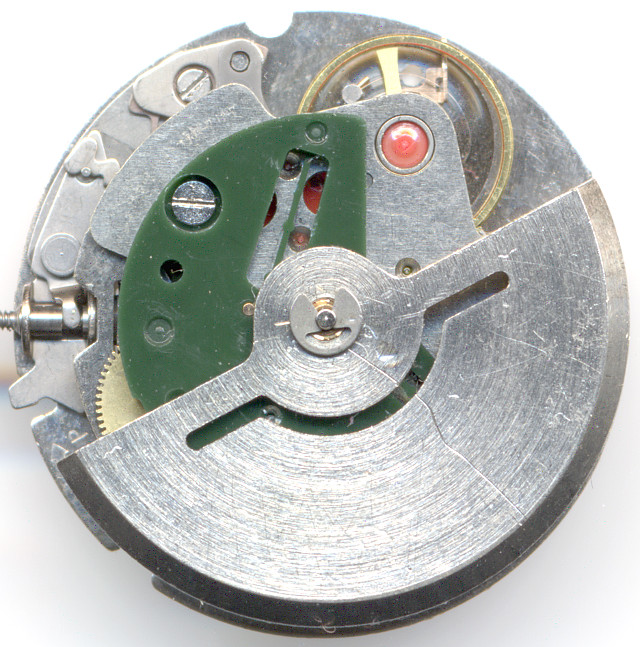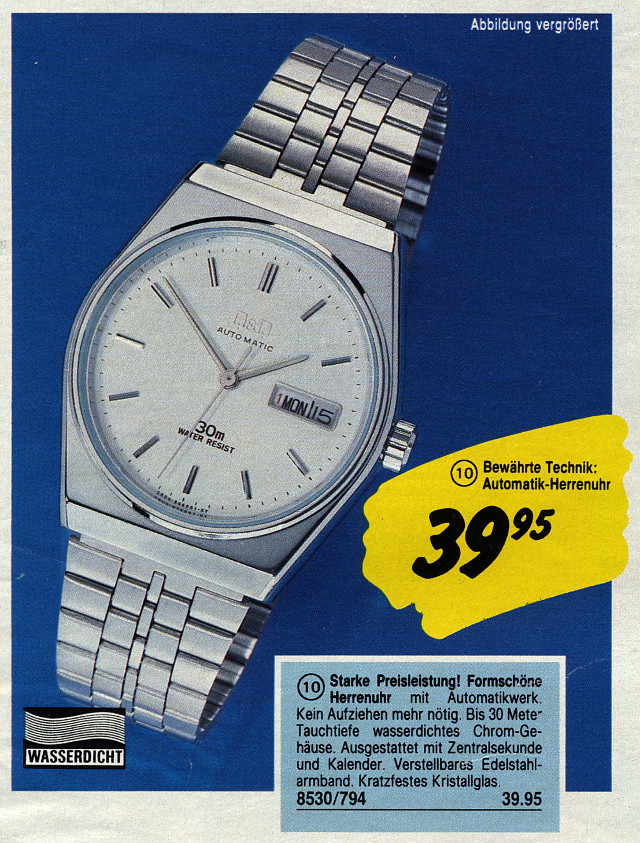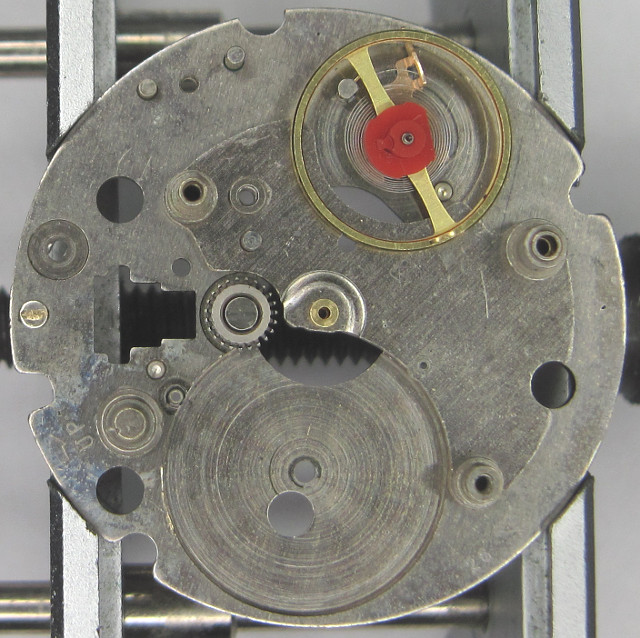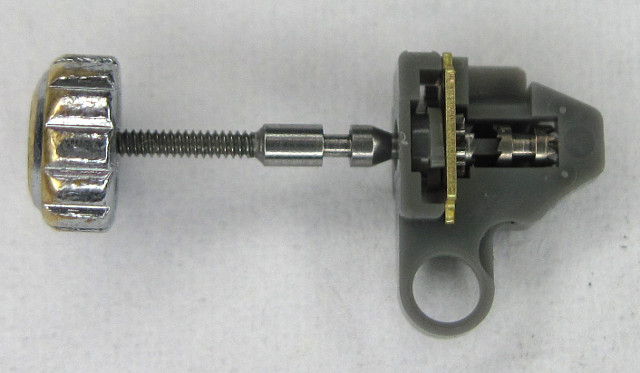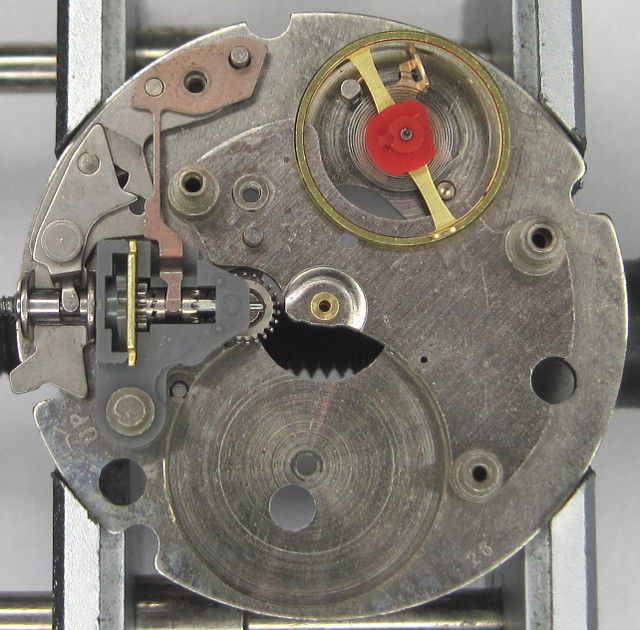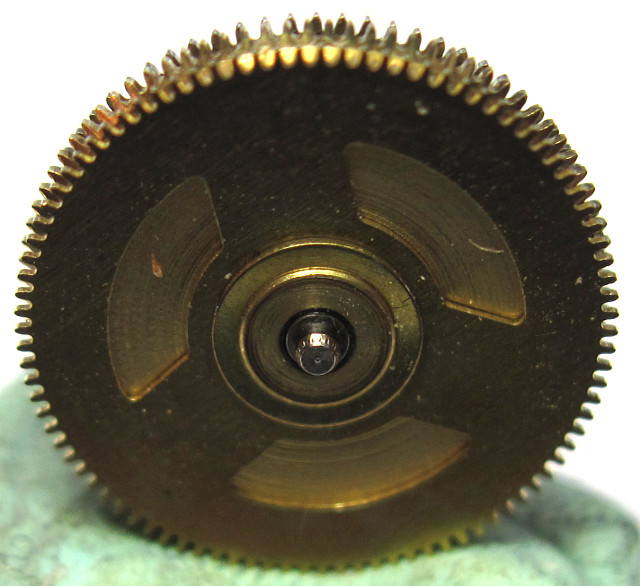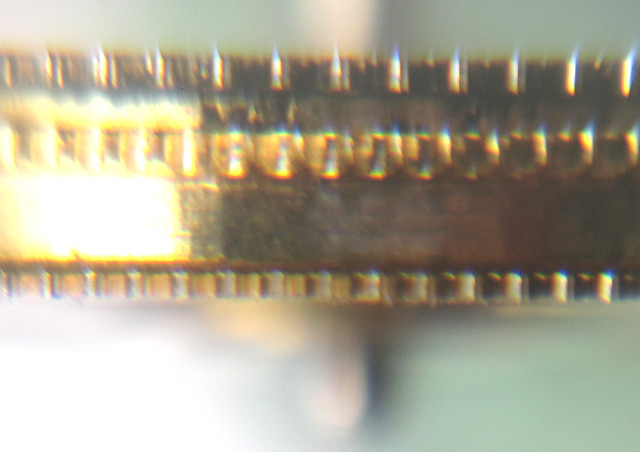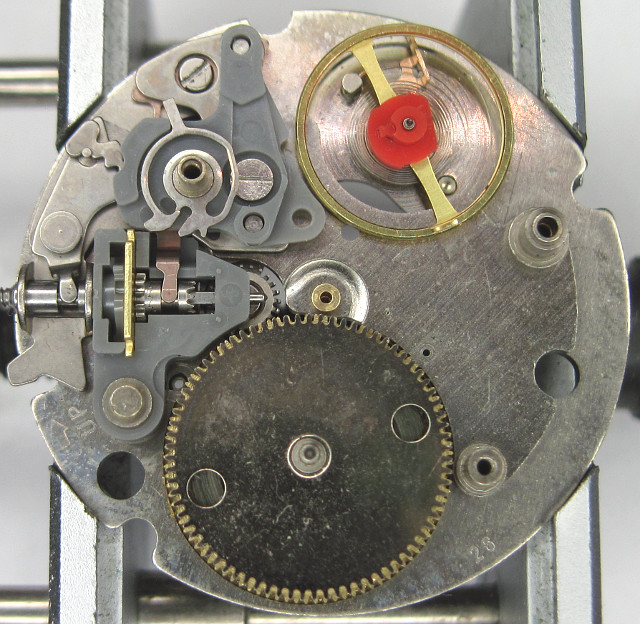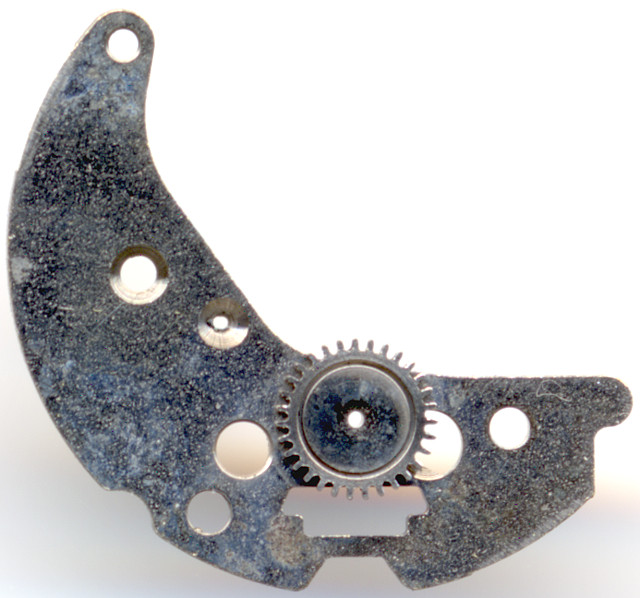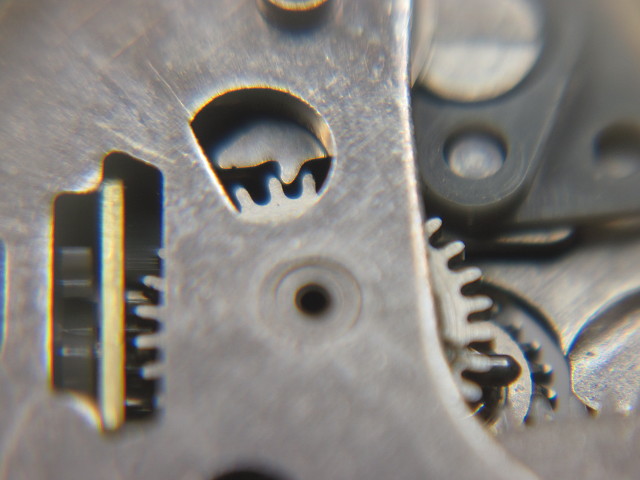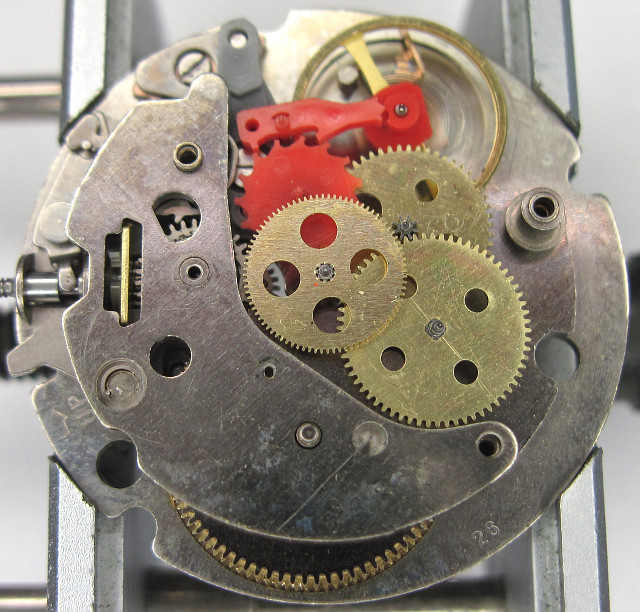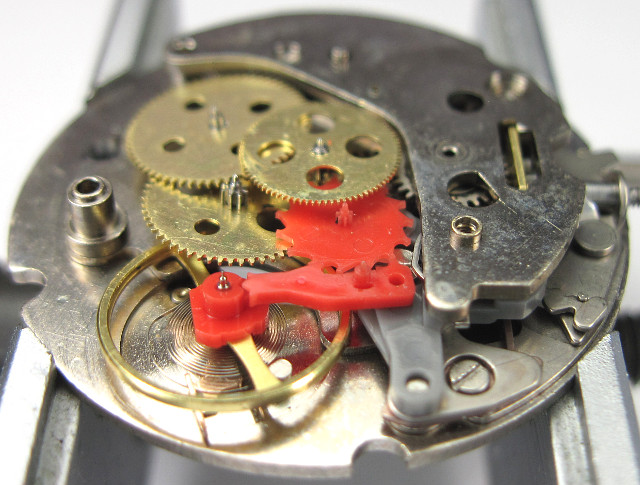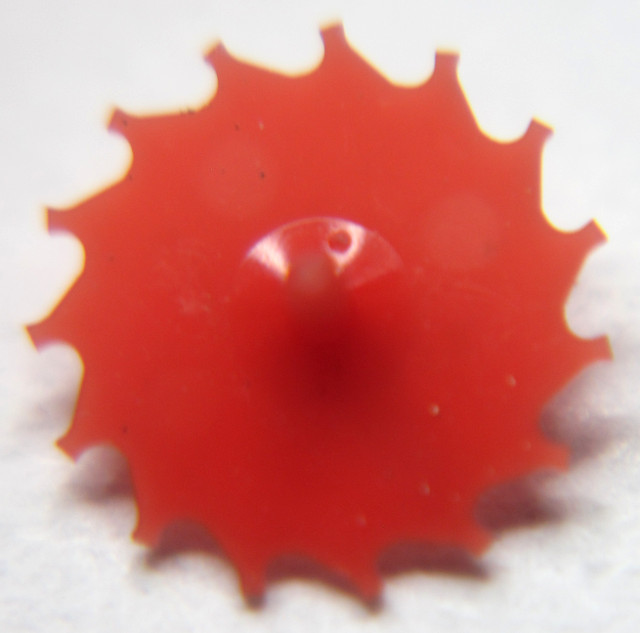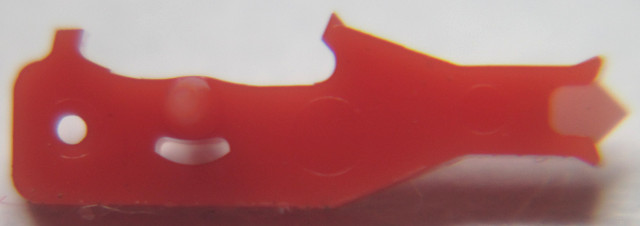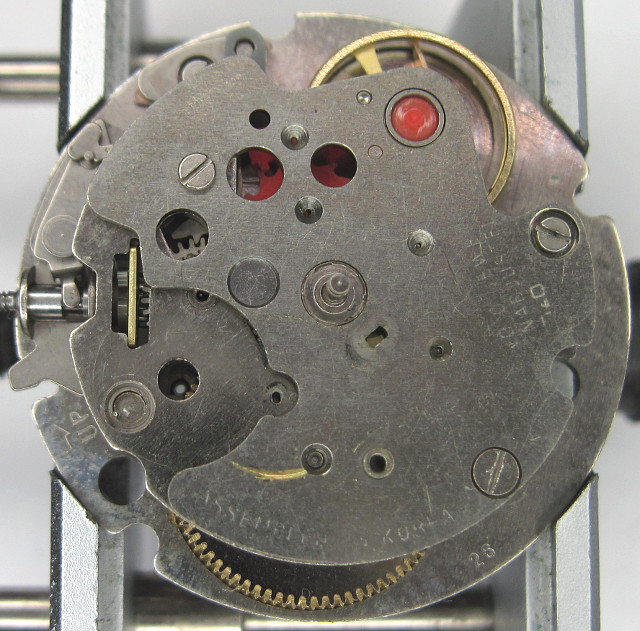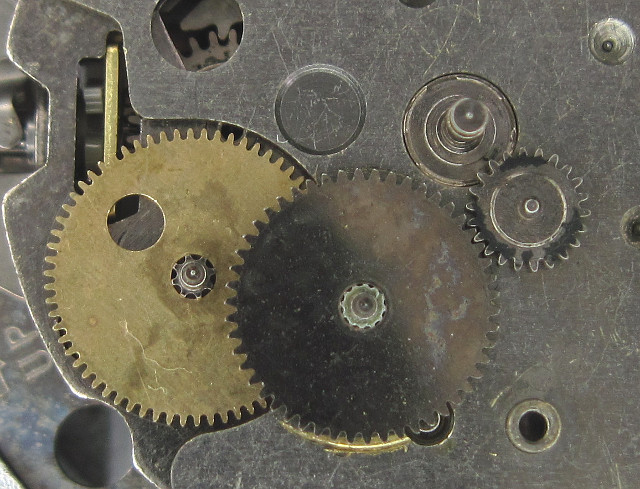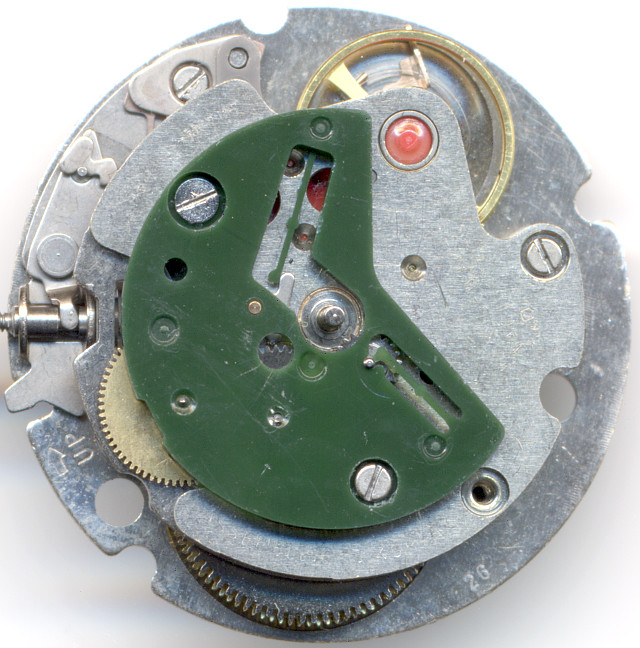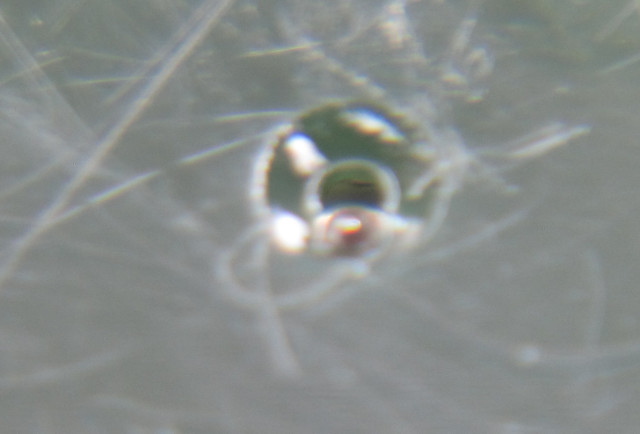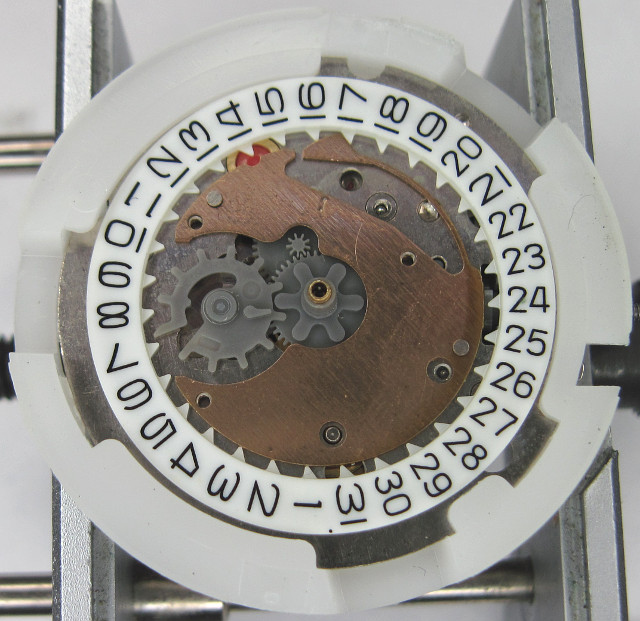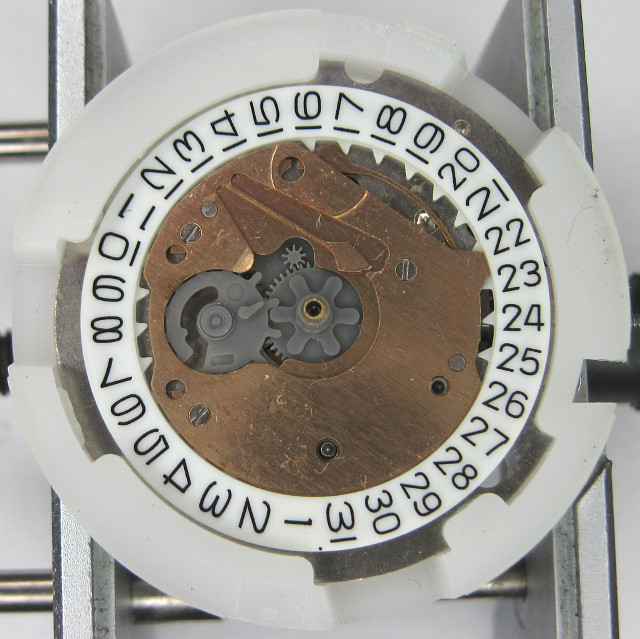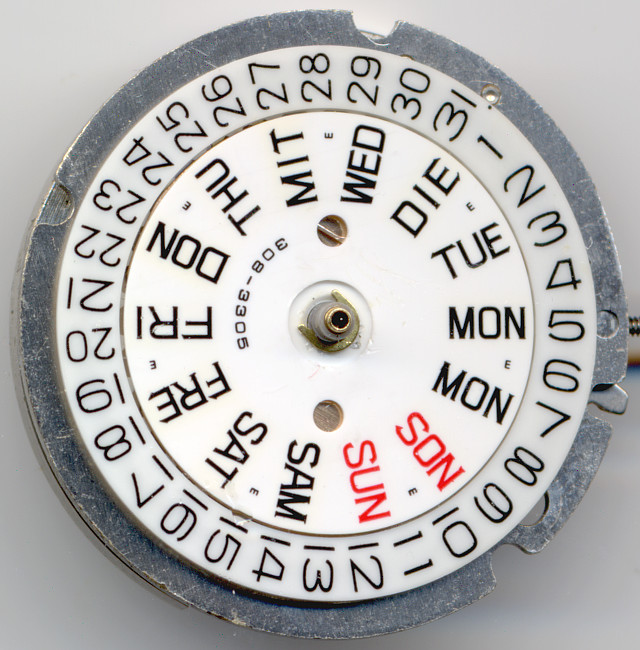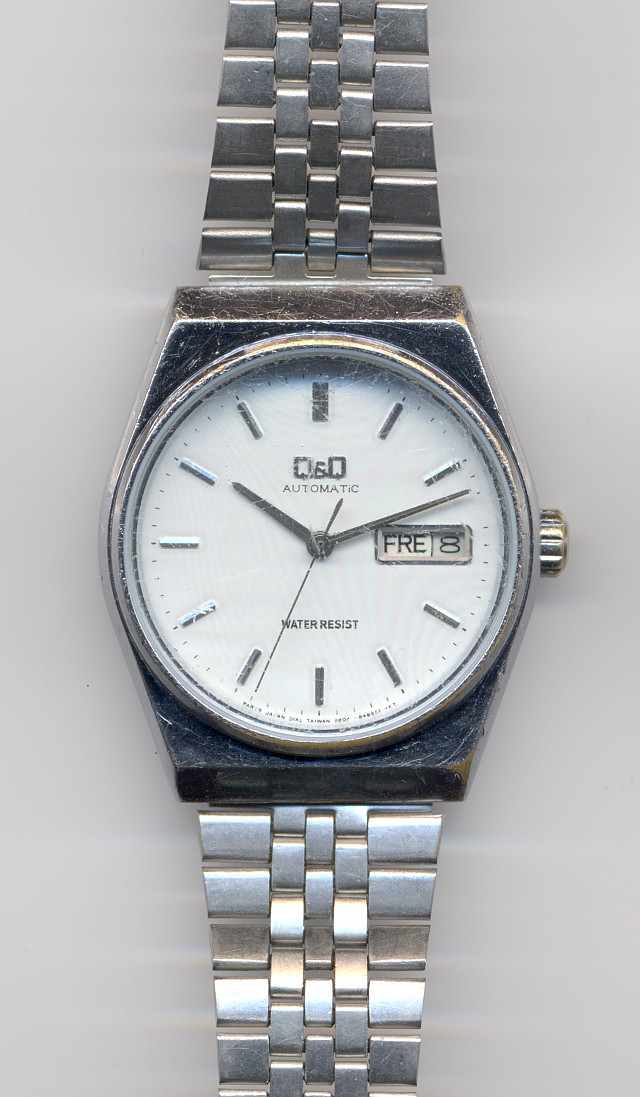Description
Since the early 1980ies, quartz movement were dominating for sure. Mechanical movements in the lowest price segment were completely overwhelmed by the quartz wave, only in the luxury segment, it was possible to earn money with mechanical movements.
Just in that time, Q&Q (“Quality And Quantity”), a South Korean sibling of Citizen, launched a selfwinding movement, which was so cheap, but also full of features, that it was sold in large quantities. For 40DM at that time (around 15 US-$), an anlogue quartz watch with day-date indication and metal bracelet was not yet available. That was the change for Q&Q to gain market shares:
The movement, we’re talking about, is the Q&Q 2604, a selfwindig movement with day-date indication and lots of cost saving features, which were already known from quartz movements.
The first saving factor was the balance. She didn’t have an own lock any more, but was fix attached head first on the base plate. Additionally, there was a very simple regulating staff, visually not nice, but well working and very similar to a Timex movement. More to the balance later!
The winding part is very well constructed, since it can be detached as a whole, including winding stem, date corrector, coupling wheel and clutch drive. All that can be mounted externally and then just be put as one part onto the base plate, where the lower time setting wheel is riveted.
Besides the winding unit, setting lever and clutch lever als also just plugged. For releasing the winding stem, the setting lever is simply raised. Sounds easy, is easy and works like a charm!
On top of the mainspring, there’s the driving wheel, which is attached in a flexible way. It reminds very much of a Roskopf movement, but here on the Q&Q 2604, the driving wheel only drives the minute hand, not the hour hand.
The mainspring barrel contains three gear rings, the lowest one drives the minute wheel, the middle one the movement and the top wheel winds the mainspring.
For cost reasons, the ratchet consists of only one specially shaped spring, see the picture below:
On the inner side of the mainspring bridge, there’s the riveted crown wheel:
When the mainspring barrel bridge is mounted, you can see, how the ratchet works:
The gears and trains consist, except the escapement wheel, of almost-massive but flat brass gears, just like on quartz movements:
The construction of the gears and trains is conventionally modern with directly driven center second and an indirectly driven hour indication.
Unfortunately on this movement, just those parts which are most crucial for precision and longevinty, excapement wheel, lever and balance finger are made of red plastic, which either turns brittle or softens, like on the specimen shown here. This is especially bad, since the axles are also made of plastic, so a rather short lifetime of that movement is ensured.
The lever is a swiss pallet lever type, the escapement wheel has got the usual 15 teeth.
The lateral lever has got two plastic pallets. It is made in one single part.
The sing balance is made of metal, its slightly waisted legs remind of those of a Glucydur balance. Plateau and finger are only a plugged plastic part and even worse, the two bearings of the balance wheel are made of plastic, too. Of course there’s no shock protection system here!
The balance beats with 19800 A/h.
The selfwinding mechanism consists of very few parts, the axle beared oscillating weight with mounted gear, a moveable pinion and two reduction wheels:
Additionally, on the inner side of the selfwindig plate (plastic made!) there’s a ratchet, which blocks the first reduction wheel. Its spring and the spring for the moveable pinion are made of plastic and belong to the green selfwinding unit plate.
The lifetime of those plastic parts is of course not very high, most problematic are the bearings, where there’s high speed and torque. You can see, how the bearing of the first reduction wheel ran out of place:
When you see that picture, it’s hard to believe, that the selfwinding mechanism still works!
On the dial side, there’s the date indication mechanism, which consists of only three plastic gears and still offers full and reliable functionality of a day-date indication with quickset mechanism! Bravo!
The hour wheel drives with it’s star shaped gears on top the date setting wheel. On its inner side, there’s the finger for advancing the weekday disc, on its outer side, there’s a moveable finger for advancing the date ring. If you turn back the time, it slips and does not set the date backwards. With that construction, you can also select the language of the bilingual weekday indication.
The large spring ensures proper display of the date and it’s a genius constuction, since it also covers the date mechanism and so eases its mounting. But there’s a cover of the cover:
This cover also contains a spring, this time for the bilingual weekday disc.
The weekday disc is, as the date ring, made of plastic and secured by a snap ring.
To sum it up, this movement is a nice compromise between cost efficiency and features and because of this it was quite popular. It’s down side is the fact, that it won’t last very long and due to the worn out plastic parts, it’s unrepairable, unless, you have to spare parts for it. And even them, it’s quite time consuming to fit all gears, the lever and the balance under the one and only bridge.
In the lab
The specimen shown here came in a heavily used case into the lab. It looks like it was worn ten years and more under hard conditions.
Probably, after that time, it didn't work well any more (sloppy balance wheel, worn out pivots and so on) and someone, who only knows quartz watches flooded it with oil, which caused it to stop working at all. Sticky hairspring and an oil-sticky lever were the cause.
The movement was completely cleaned, but since the plastic axles of the wheels became too soft, it wasn't possible to bring it back to work. But at least, it ticks now for a few seconds, so it's not a complete loss.
Technical data
| Manufacturer: | Q&Q |
| Caliber: | 2604 |
| Size: | 11 1/2''' (measured: 26mm) |
| A/h: | 19800 |
| Escapement: | Plastic lever |
| Balance types: | Nickel anular balance |
| Shock protection(s): | none |
| Adjust mechanism: | Hairspring key |
| Construction: |
|
| Construction type: | pillar construction |
| Winding mechanism: | yoke winding system |
| Features: |
|
